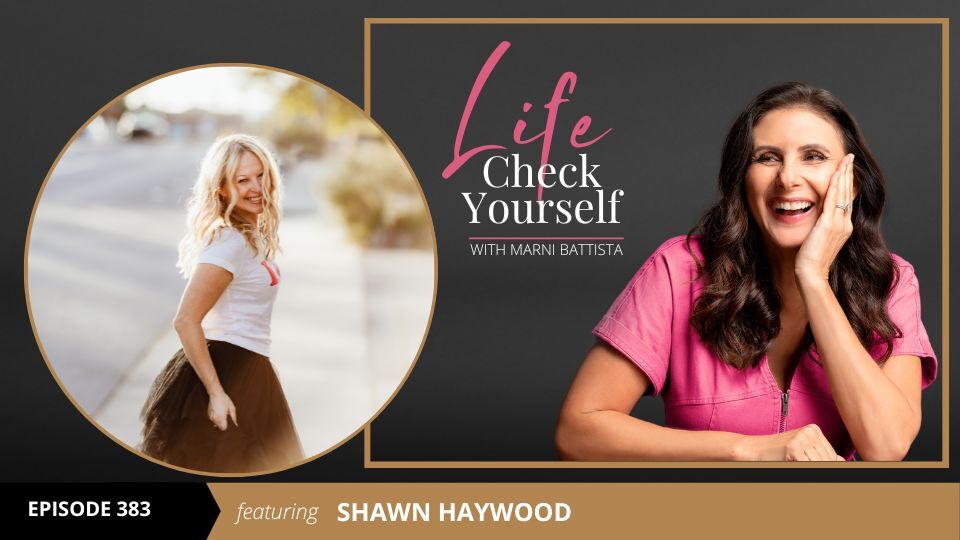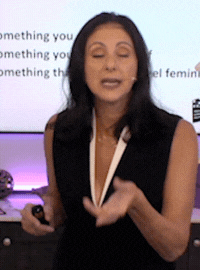Life Check Yourself Episode 383 Does Your Man Have the ONE Quality He Needs to Create a Long-Term Relationship? with Shawn Haywood
Marni welcomes Dr. Shawn Haywood, founder and owner of Reimagine Love, in the Life Check Yourself studio, to discuss how to reignite the spark, and adopt a conflict-free relationship. Dr. Shawn, who’s worked in the field for over 23 years, delves into the tools and tips for learning to reverse-engineer your relationship and get back to that happy place. In this episode, the duo talks about what it takes to make a relationship work and how we, sometimes, self-sabotage by constantly repeating the same patterns on an individual level. This behavior inevitably seeps into our romantic life. By setting up certain systems with your partner, to undo what years of unconscious habit-building have brought on, couples can find that fight-free space together.
Takeaways from this episode:
- How to break bad habits
- Create your own unique system
- Start a problem list
- How to reconnect when you’re disconnecting
- Let go of blame
- Don’t manage conflict, outgrow it
Lay Down Your Emotional Weapons [03:32]
It’s not about managing the conflict; it’s about outgrowing it both on an individual level and as a couple. Outgrowing it doesn’t mean ignoring it, or overwriting it, or even putting it in your hidden little black box. It requires you to actually identify and grow out of it. By putting your weapons, in this case emotional weapons, aside, you begin to grow within the relationship.
Dr.Shawn clarifies that 80% of the work she does with couples begins with the person themselves. Identifying your emotional weapons, and what triggers them, and then putting them down, opens up room for you to not only to communicate better, but to pick up other skills you otherwise wouldn’t have.
Sharing a personal anecdote, the doctor talks about an incident when her partner had done the dishes but hadn’t cleaned out the sink. Instead of thanking him for the dishes, she shamed him, and the fight went on to spiral into an argument about other issues. In this scenario, her emotional weapon was shame – one we’ve all been guilty of doling out at one point or another. Learning to put that down meant that she grew to become more appreciative and grateful for the things that were actually there. In outgrowing the conflict, you’re also growing on an internal level.
These things are patterns, and if we don’t repair them or revise how we hold these conflicts, we’ll just keep repeating them. And it’s repetition that causes the problems.
With relationships, it’s just as important to look inwards as it is to look outwards. Identifying and getting out of your own patterns allows you to shift your outlook. Every fight has blame, and letting go of that blame is a good starting point. Take accountability and realize it’s not about blame but rather about resolution.
Stop Trying Harder [11:01]
Yup, this isn’t a typo. Stop.Trying.Harder. Practice makes perfect is a sentence that has been repeated to us over and over again. We were constantly told that in order to achieve something, we need to keep trying harder, and harder, and harder.
But does that always work? And does practice actually make perfect? Or rather does it allow us to make certain traits or mistakes more permanent?
The concept of practice makes permanent, as per Dr.Shawn, stems from the belief that repeating the same thing over and over again, even when it’s a mistake, makes it stick; makes it permanent. It’s almost like we’ve mastered that mistake or that character trait. And that’s part of the reason, we find it so hard to break out of habits.
From a neurological perspective, anger elicits the release of a number of chemicals, like dopamine, serotonin and adrenaline. Our bodies then crave that release constantly. Unless we learn how to manage these chemicals and unwire them from these negative emotions or behaviors, we start forming a pattern in chase of that “feeling.”
Our brain is designed for sameness, because [staying the same] uses the least amount of energy.
Women in society, especially perfectionists and high-achieving women, have been socialized into believing that the solution is to constantly try harder at the same thing. However, that tactic is in some cases counterproductive and holds us back. Being intentional in the habits we want to keep requires intentionality and repetition; it requires setting up systems that help us achieve that goal whether that’s to add permanence to a certain trait or decrease permanence to another one.
[With a system], we have something that we can count on so that our body, mind and spirit can get out of this trap, this pattern that we stay in.
Catching More Flies With Honey, Not Vinegar [18:27]
Sometimes it’s the medium not the message. That’s to say the way with which you present an idea or concept goes a long way. When setting up systems as a couple, it’s important for both involved to be on the same wavelength in terms of the effort being put in. When one person is intentionally growing, while the other isn’t doing the work, the process starts stagnating and even veering towards a trouble zone. But who can you convince your partner?
Men respond to logic. If what’s being told to them makes sense, and is framed as more of an invitation rather than a demand, they’re more likely to be on board.
There has to be an opportunity that is more about an invitation to join the party, whatever the party is. Doing it in a way that’s inviting and loving is all about radical self-responsibility.
Radical self-responsibility is the notion of taking accountability in how you choose to experience your life, and that extends to how you choose to approach your partner as well.
Make a Connection:
- 3 Secrets Men Wish You Knew *Free Download*
- How to Eliminate Burnout: How to use the Radical Living Blueprint to Reinvent Your Life
- Ready To Take Control Of Your Life? Book A Call With Us
- Unlock the shocking truth about how your unique personality type is silently shaping your future
- Shawn’s Website
- Shawn’s Living For Love book
- Find Shawn on IG: @DrShawnHaywood










